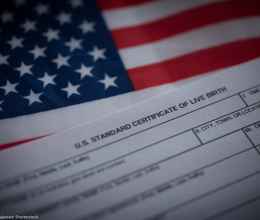
The ACLU-NJ welcomed a directive from New Jersey Attorney General Gurbir Grewal guiding law enforcement agencies to use their resources to address local concerns rather than to carry out the agenda of federal immigration enforcement agencies, which often runs counter to their own interests. In essence, this directive draws a bright line between the role of local law enforcement and the role of federal immigration authorities.
The new directive, developed through a process that incorporated voices of advocates and law enforcement alike, will ultimately build greater trust between communities and the police, sheriffs, prosecutors, and criminal justice officials who work on the public’s behalf.
“Every New Jerseyan should be able to raise their children, go to work, and contribute to their communities without the fear that an ordinary interaction with police could derail their lives,” said ACLU-NJ Senior Supervising Attorney Alexander Shalom. “Because of this directive, everyone in our state can feel more secure in their rights and safer in their communities.”
New Jersey law enforcement agencies will not contribute facilities, resources, equipment, offices, or officers for federal immigration enforcement operations. The directive severely restricts U.S. Immigration and Customs Enforcement’s access to New Jersey jails, and it prevents New Jersey law enforcement from asking about immigration status expect where it is directly relevant to the investigation.
The directive also requires the Office of the Attorney General’s authorization to enter into any new 287(g) contracts with U.S. Immigration and Customs Enforcement. The 287(g) contracts with ICE in counties that currently have them – Cape May, Monmouth, and Salem – will continue unless the counties end them.
Crucially, New Jersey jails will dramatically reduce instances where they honor immigration detainers – voluntary requests from ICE to hold someone in detention to allow the agency to check their immigration status – unless backed up by a signed judicial warrant. Courts have consistently ruled that ICE holds violate the Fourth Amendment or state law, including a notable opinion in New York on Nov. 14 this month.
“The family separations we’ve witnessed, both at the border and here in New Jersey, have led so many of us to question who we are as a nation. With this directive, we can proudly answer who we are as New Jerseyans: we’re a state of people who feel morally bound to stand up for the rights, dignity, and safety of everyone who lives here, no matter their country of origin or place of birth,” said ACLU-NJ Executive Director Amol Sinha.
The new directive replaces an earlier, deficient directive put in place in 2007. That policy required law enforcement to ask people accused of felonies about their immigration status, forbade them from asking about the immigration status of witnesses and victims, and provided no clarification on other encounters with law enforcement.
The directive corrects some of the worst aspects of the previous policy, although advocates hope to work with the administration to make protections of the new directive even stronger. For example, law enforcement can still honor detainer requests in some instances, exposing jails to civil liability and New Jersey residents to unnecessary entanglement with immigration authorities.
The ACLU-NJ and its partners in the New Jersey Alliance for Immigrant Justice, and beyond, are planning to disseminate information to the public about how the new directive will affect them in practice.

